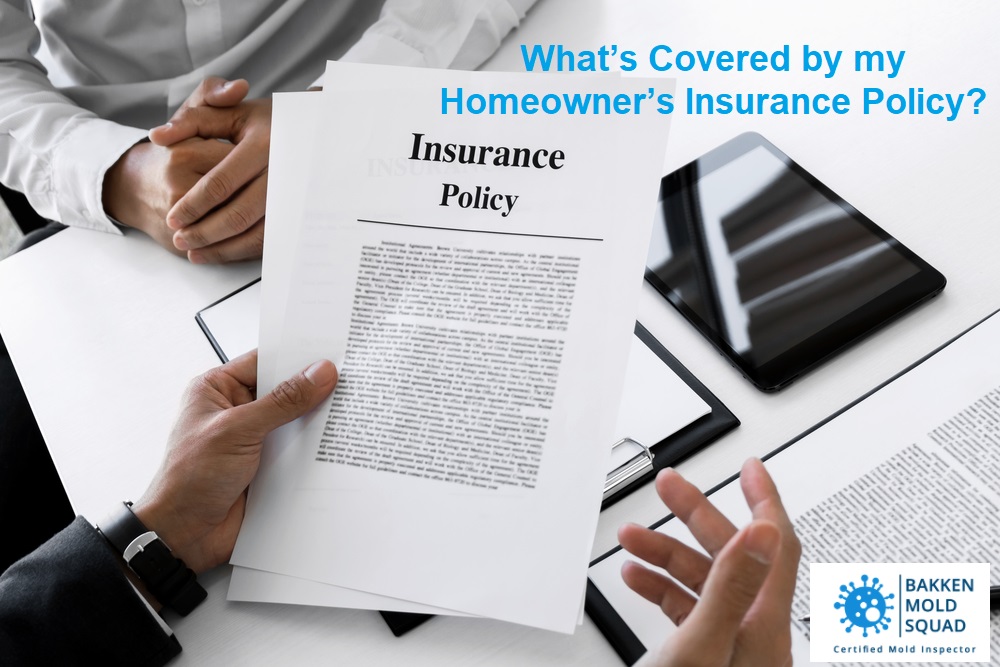
Do you know What’s Covered in your Homeowner’s Insurance Policy?
It can be difficult to manage the insurance process if your home has been damaged by water, fire, or a storm. What is the scope of your insurance policy? What isn’t included? How much do you really pay if your house is damaged? To give you a brief idea of how the insurance process works, here’s a quick rundown of what’s protected (and what isn’t) under the simplest homeowner’s insurance policy.
What Is the Most Common Insurance Policy?
Although, each insurance provider is different, the HO-3 is the most popular homeowner’s insurance policy. The HO-3 scheme protects the majority of your home’s basic losses, such as water damage, fire and smoke damage, and storm damage. There are, however, a few exceptions.
What Does the HO-3 policy cover?
Water Damage
The HO-3 policy also protects water damage caused by weather or in-home appliances. This ensures that water damage incurred from burst pipes, a broken water heater or water softener, a leaking HVAC device, or a leaking roof from downpours is covered by your insurance.
What Water Damage Isn’t Covered?
The H0-3 policy does not cover the following:
Property destroyed by flooding of rivers, lakes or other types of water bodies. Flood insurance is a different type of scheme. In reality, if you live in a floodplain, many places in Minneapolis require you to buy flood insurance.
For example, if you had a hole in your roof before it started raining and the rain caused damage to your house, your insurance policy would consider it something you should have avoided.
Mold Damage
A homeowner’s insurance does not cover mold growth issues unless it was caused by water damage from one of the causes mentioned above. Your insurance policy would not cover mold growth in your home if it was something you might have avoided.
Consider what would happen if your basement flooded. The Mold that grows as a result of the flooded basement will be covered by the insurance policy. However, mold growth in your bathroom due to improper cleaning will not be covered.
Fire and Smoke Damage
Fire and smoke damage are covered by your insurance policy as long as the fire was not caused by something you could have easily avoided. This ensures that your home is protected if it is destroyed by either of the following:
- Electrical explosions
- Grease fires
- Wildfires
- Electrical explosions
What Fire Damage Isn’t Covered?
When your house is destroyed by arson, you are not covered. Arson insurance fraud is the intentional setting of your house on fire in order to file a claim on your insurance policy. The fire will be reviewed by your insurance provider, and if arson is found to be the cause, the damage will not be compensated.
Fire damage that occurs when your home is unoccupied is also not shielded. If a house hasn’t been rented for more than 30 days, it’s deemed empty by insurance firms. If you plan on being away from your home for an extended period of time, you can purchase a special policy that protects empty houses.
Storm Damage
In most cases, if your house is destroyed by a storm, it is secured.
Lightning is just one of them.
- Hailstorm
- Windstorm
- Fallen Artifacts
That means you are safe in the event of a storm, ice dams on your roof, and even a falling tree. When it comes to storm damage, however, deciding what is covered and what isn’t can be challenging. For example, if a river floods your home as a result of heavy rainfall, your homeowner’s insurance will not cover the damage because it is called flood damage. A roof leak caused by heavy rains, on the other hand, should be secured!
What Storm Damage Isn’t Covered?
The following are the most common items that the HO-3 strategy does not cover:
- Floods
- Earthquakes
- Landslides, mudslides, and sinkholes
- Preventable harm
- Back-up sewage
You can add additional risks to cover by your policy, such as flood insurance or earthquake insurance, even though they aren’t included in the main policy. Identifying what you require can be as easy as deciding which natural disasters your home is at risk of.
Is a Home Remodel Covered By My Insurance Policy?
If your property deals with damages caused by the ones covered by your insurance policy, your insurance provider will pay a fixed amount to restore it to its original state. Although, you can opt to remodel your home after it has been destroyed, both the reconstruction and remodeling costs will not be protected.
Want to Learn More About the Insurance Process?
Are you looking for more information about how to deal with home insurance while dealing with a repair company? More information about our insurance process please contact us.